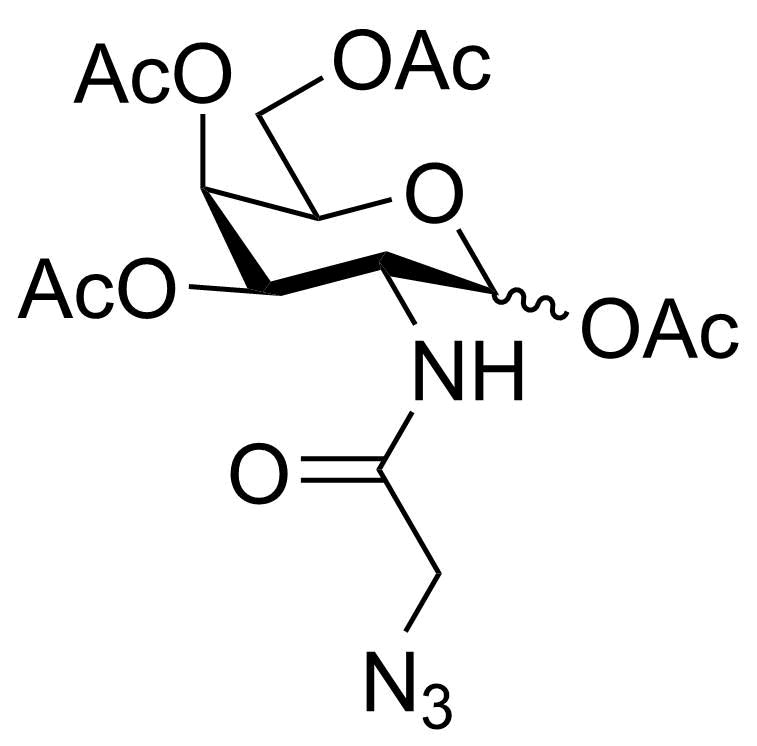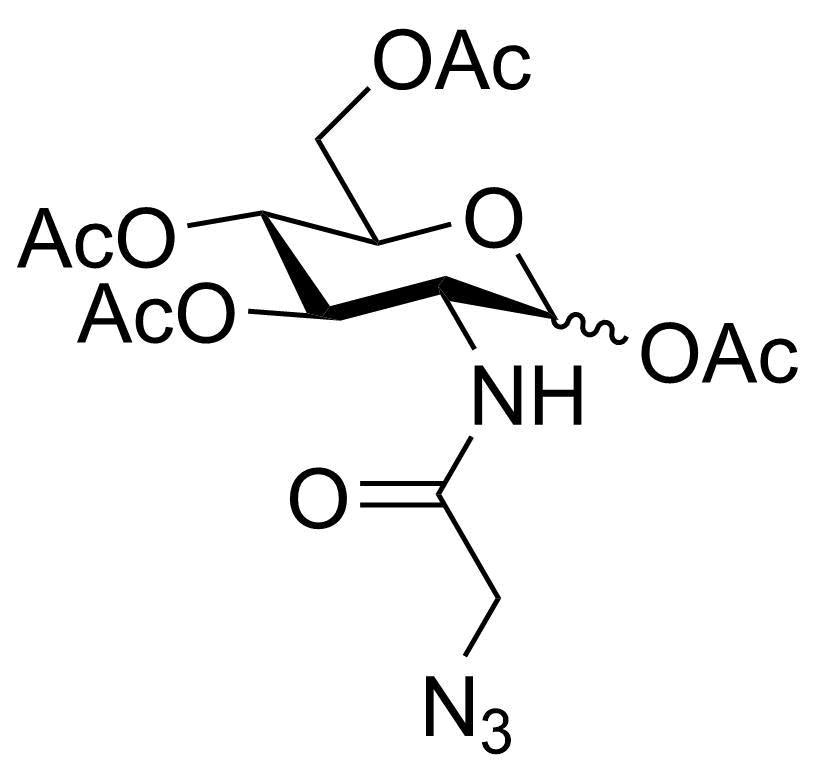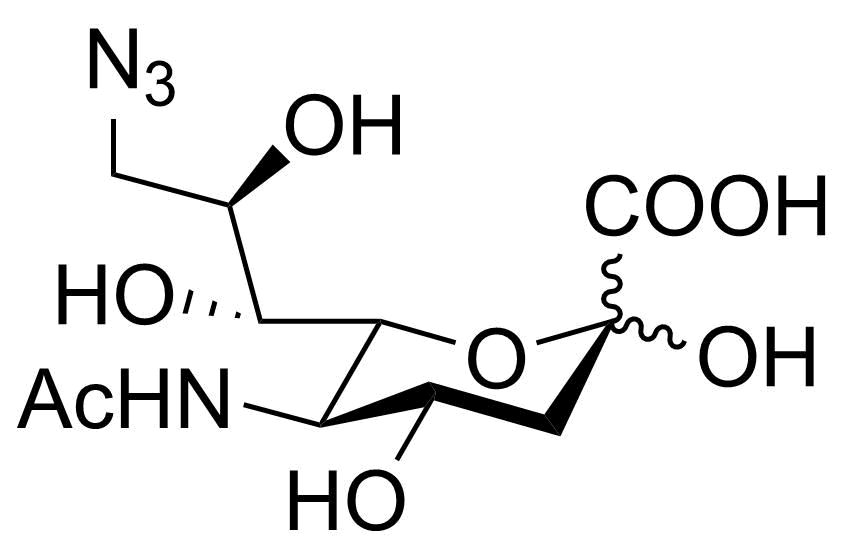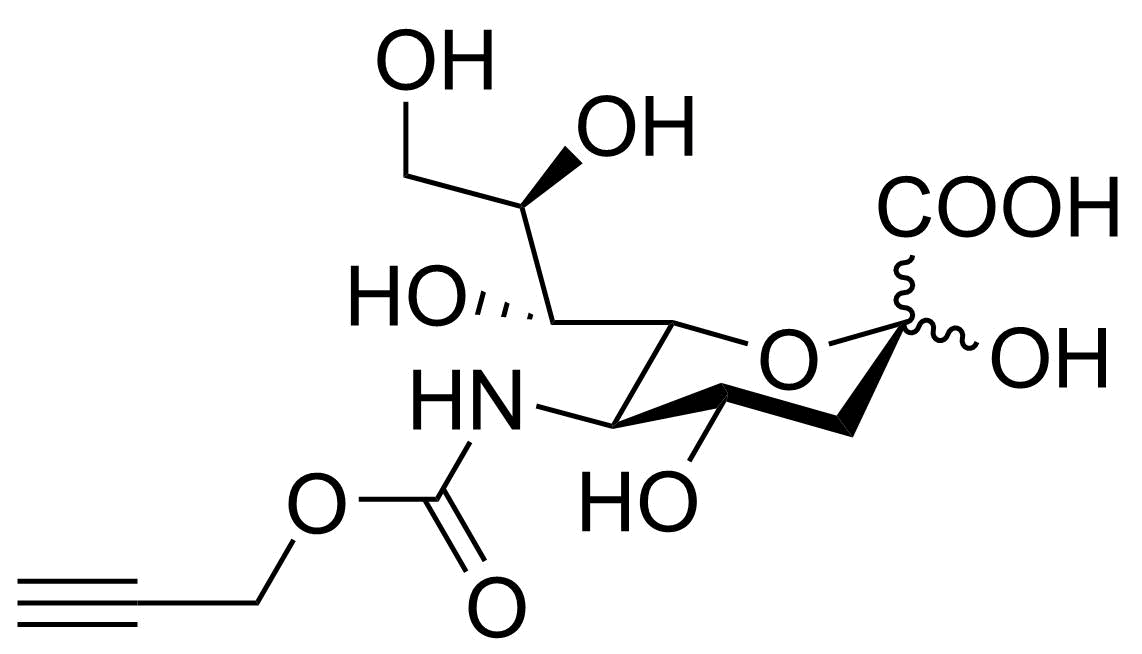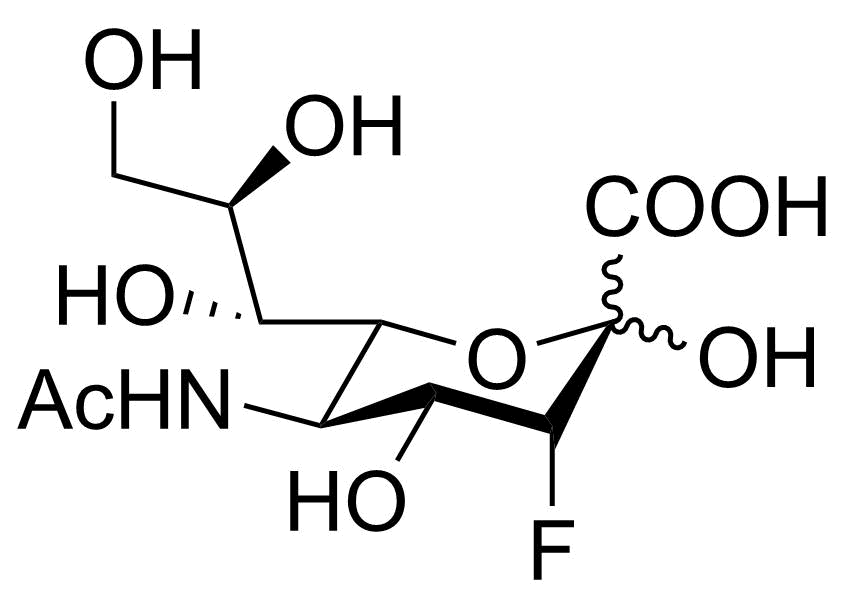P-Neu5NAc
Control compound for experiments utilizing sialic acid derivatives
| Product ID: | SV3783 |
|---|---|
| Synonyms: | Ac5Neu5Ac, PNANA |
| Tags: | Control compound, Neuraminic acid |
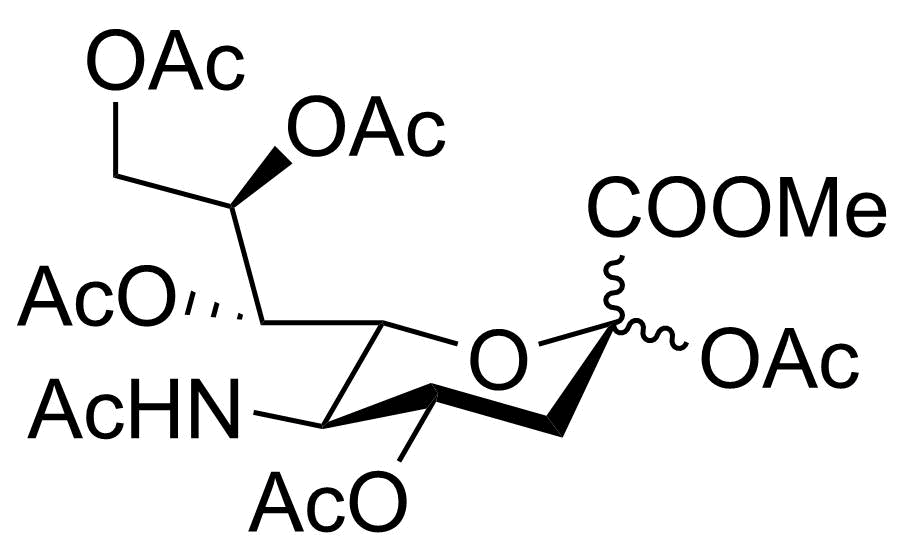
| Product | Price | Estimated Shipping Time | Purchase |
|---|---|---|---|
| P-Neu5NAc - 10 mg | €100.00 | 1-3 days | |
| P-Neu5NAc - 100 mg | €150.00 | 1-3 days | |
| P-Neu5NAc - 500 mg | €450.00 | 1-3 days |
Product information
-
Function
P-Neu5Ac is a control compound for labeling/inhibition experiments utilizing acetylated neuraminic acid derivatives. P-Neu5Ac9Az, P-Neu5NAz, P-Neu5Ac3F
-
Mode of action
P-Neu5Ac is taken up by cells via passive diffusion because this compound contains O-acetyl (OAc) groups. These groups make the molecule more lipophilic so that it can passively diffuse over mammalian cell membranes. Inside cells, these O-acetyl groups are removed via non-specific esterase releasing neuraminic acid and acetic acid. It is possible that at high concentrations, the released acetic acid or the partially acetylated intermediates are toxic. In addition, at high concentrations, non-specific reactions of acetylated precursors and cysteine residues have been observed.1 At low µM concentrations, these effects are likely negligible but it is advisable to use a control compounds such as P-Neu5Ac. Finally, P-Neu5Ac can be used to boost neuraminic acid levels. In particular the expression of GD2 was improved by the addition of P-Neu5Ac. 2
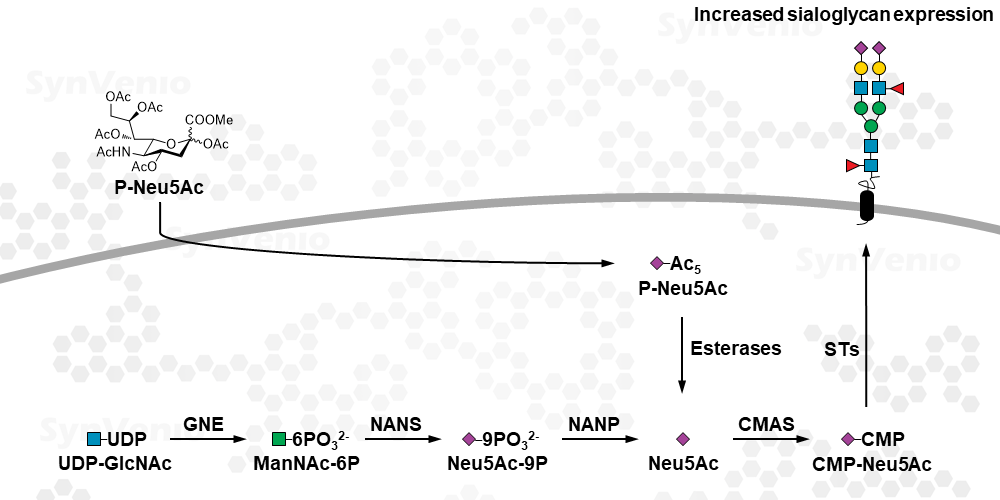
-
Applications
Control compound for labeling/inhibition experiments utilizing acetylated neuraminic acid derivatives (P-Neu5Ac9Az,P-Neu5NAz, P-Neu5NAz, P-Neu5Ac3F).
-
Handling
P-Neu5Ac is soluble in a mixture of DMSO and PBS and is added to cell culture from a stock solution.
-
Chemical Information
CAS No.: 73208-82-9
SMILES: O=C(OC)C1(OC(C)=O)C[C@H](OC(C)=O)[C@@H](NC(C)=O)[C@H]([C@H](OC(C)=O)[C@H](OC(C)=O)COC(C)=O)O1
Chemical formula: C22H31NO14
Molecular weight: 533.47
Purity: > 95%
Identity: 1H NMR
Shipping temperature: 20°C
Storage temperature: 20°C
Calculator
Dissolve the required mass in your desired stock volume.
Dilute the required volume of your stock solution to the desired final volume.


